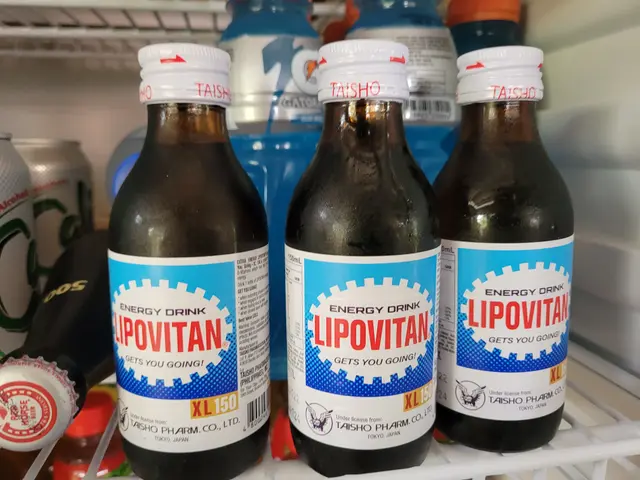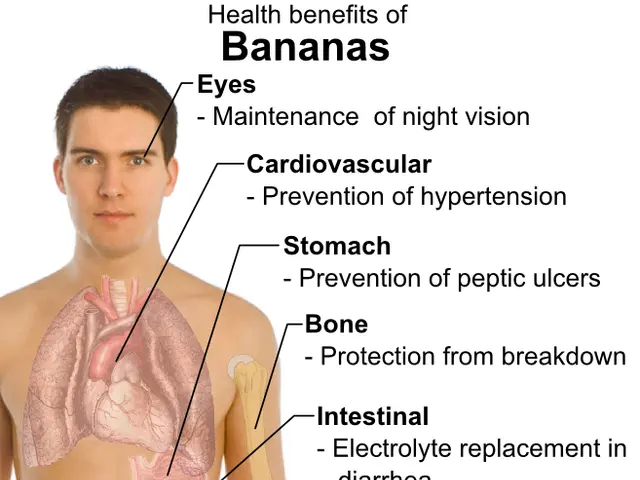The MedWalk Revolution: Combatting Dementia and Cognitive Decline
Embrace the Power of a Mediterranean Diet and Walking
Maintaining cognitive health: Adopting a Mediterranean diet and an active lifestyle could potentially offer shield against deterioration
The combined force of a Mediterranean diet and regular, brisk walks could revolutionize brain health and ward off cognitive decline. A groundbreaking study, affectionately dubbed the "MedWalk intervention," is currently underway to investigate this dynamic duo's effects on dementia and Alzheimer's.
Researchers Dive into the MedWalk Intervention
The MedWalk study brings together researchers from Australia, New Zealand, and the United Kingdom in an innovative collaboration. Initiated prior to the global pandemic, COVID-19 disrupted its course, forcing modifications to the timeline and study design. Nonetheless, the scientists' commitment to unlocking the secrets of brain health remains unwavering.
However, the researchers have made the process and ongoing analysis transparent by publishing their work in the Journal of Alzheimer's Disease.
The MedWalk Intervention: How it Stacks Up
In contrast to earlier studies focusing on individual factors like a Mediterranean diet or walking, the MedWalk study takes a multi-tiered approach to understand the full impact of this potent combination. The research strives to gauge the impact of the MedWalk intervention on various aspects, from visual memory and learning to mood, quality of life, and healthcare costs. Amazingly, the team even factors in cardiovascular health and arterial stiffness in the grand scheme.
Notably, the primary focus centers on the 12-month change in visual memory and learning, seeking to unveil potential benefits for our memory-storing capabilities.
Participants in the MedWalk Dance
The participants for the MedWalk study consist of individuals aged 60 to 90 who reside in South Australia or Victoria. They hail from both independent living retirement communities and the wider population, thanks to pandemic-related adaptations. Regardless of their origins, all share a common goal: optimal brain health and dementia prevention.
To ensure the participants' prosperity, the scientists pay special attention to biomarkers associated with cognitive decline, such as glucose regulation, inflammation, nutrient levels, and oxidative stress.
Divide and Conquer: The MedWalk Groups
Participants were carefully divided into two groups for the MedWalk study: the intervention and control groups. Those in the intervention group embark on a journey that combines dietary adjustments, walking routines, and behavioral change techniques, all aimed at staving off cognitive decline.
Over the first six months, they receive intensive support to remain on track. For the remaining six months, additional help remains accessible to keep them motivated and dedicated.
Mediterranean Delights
The researchers offer guidance regarding the nuances of a Mediterranean diet distinguished from a typical Australian diet. For instance, they provide participants with extra-virgin olive oil for free, a key component of this wholesome way of eating. Other essential foods are also part of the equation.
After establishing baseline aerobic fitness, the participants engage in group walks for the first six months, followed by monthly sessions for the rest of the study.
Mediterranean Diet: The Secret Weapon Against Cognitive Decline
Certified nutritionist Conner Middelmann, specializing in the Mediterranean diet, has high hopes for this antidote to cognitive decline. While Middelmann believes studies suggest that following a Mediterranean diet reduces the risk of dementia, she emphasizes that genetics, lifestyle, and overall health are also crucial factors.
The Mediterranean diet may guard our brains in several ways, including:
- Antioxidants that combat oxidative stress and inflammation, which are suspected of contributing to cognitive decline and neurodegenerative diseases.
- Omega-3 fatty acids, most notably docosahexaenoic acid (DHA), crucial for brain health and linked to improved cognitive function and lower dementia risk.
- Fiber that promotes a healthy gut microbiome, decreasing insulin resistance and inflammation.
- Limited consumption of ultra-processed foods, believed to be risk factors for dementia.
Lastly, Middelmann highlights the social and exercise aspects of the Mediterranean diet, both of which have been linked to improved brain health.
Lace Up Your Sneakers: The Brain-Boosting Power of Walking
Walking daily, especially reaching the coveted 10,000 steps, appears to slow down cognitive decline and decrease the risk of dementia. One study found that doing so reduced the risk by half!
Walking is believed to provide these benefits by:
- Increasing brain blood flow.
- Strengthening cognitive impairment.
- Alleviating feelings of overall stress and improving mental well-being.
- Incorporating social elements and exposure to nature, both of which have been linked to brain benefits.
As the data-collection period for the MedWalk study concludes by the end of 2023, we eagerly await the final results that will undoubtedly redefine our understanding of brain health and cognition.
Stay tuned for more groundbreaking discoveries in the realm of the MedWalk intervention!
- The combined power of a Mediterranean diet and regular, brisk walks could revolutionize brain health and potentially ward off dementia and Alzheimer's disease.
- The MedWalk study, currently underway, combines researchers from Australia, New Zealand, and the United Kingdom aiming to uncover the effects of this diet and exercise regimen on brain health and cognitive decline.
- The MedWalk study takes a multi-tiered approach, evaluating its impact on aspects such as visual memory and learning, mood, quality of life, healthcare costs, cardiovascular health, and arterial stiffness.
- The primary focus centers on the 12-month change in visual memory and learning to discover any potential benefits for memory-storing capabilities.
- Participants for the study range from independent living retirement communities to the wider population, aged 60 to 90, with a shared goal of optimal brain health and dementia prevention.
- The Mediterranean diet, a key component of the MedWalk intervention, is believed to reduce the risk of dementia by combating oxidative stress and inflammation, providing Omega-3 fatty acids, fiber, promoting a healthy gut microbiome, decreasing insulin resistance, and limiting ultra-processed foods. Additionally, the daily exercise component of the Mediterranean lifestyle, such as walking, has been linked to improved brain health and a reduced risk of dementia.








